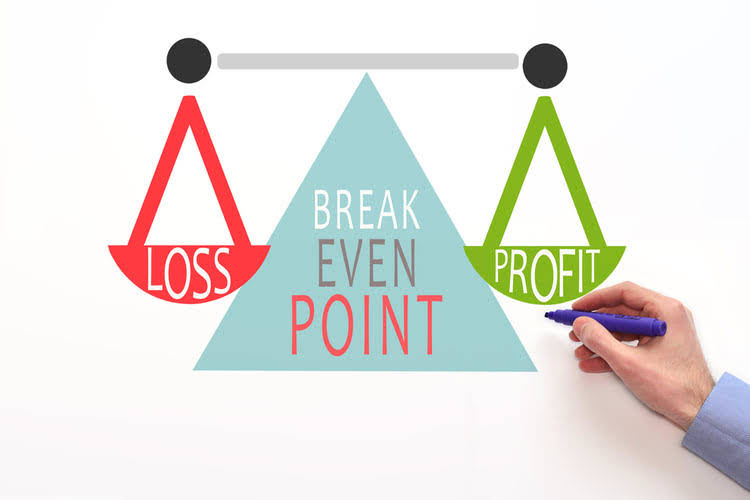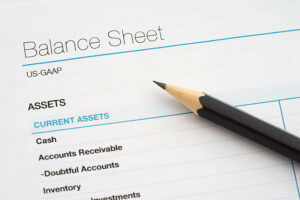
But if your business is busy and you want it to grow, hiring a bookkeeper or accountant is money well spent and could help you see more growth and more profit. It’s fine to do your own bookkeeping so long as you’re organised, methodical and quite good with figures, but doing your own accounts is time-consuming. If you claimed any of the five self-employed income support scheme (SEISS) grants over the period 2019–2021, you must include any money you received on your tax returns for the two relevant years. Your tax return shows turnover less expenses, along with any other income received from other sources (e.g. interest on shares, from property letting etc).
Tax advice and relief options for landlords
Overlooking deductibles, misclassifying expenses, and not keeping receipts are common accounting mistakes that sole traders should avoid to manage their finances effectively. Many sole traders believe they can manage everything alone, only to find out – often too late – that they’ve missed a critical tax filing or haven’t claimed all their expenses. It’s like painting your own house; you might save money upfront, but without the right expertise, you might end up with a less than professional finish.
Get product support
As businesses grow, their accounting needs can become more complex. They might take on employees in which case payroll will be needed and an accountant can help with this. Turnover might hit the mandatory VAT threshold in which case an accountant will advise on the best VAT scheme and handle VAT returns.
- Once a business forecasts that it will generate revenues of at least £85,000 in the following 12 months, it may be that the business needs to register for VAT and submit quarterly VAT returns to HMRC.
- As a sole trader, you might feel like you’re all alone when it comes to planning for your business’s future.
- The best accountants for sole traders will ensure that everything you do is by the book – and that you’re making as much profit as you can.
- These will help to keep your financial activities accurate and straightforward.
- Exploring the accounting maze as a sole trader can seem daunting, but it’s your stepping stone to financial clarity and business success.
What are the accounting obligations of a sole trader?

Oh, and don’t forget, if your turnover exceeds £85,000, you must register for VAT. You pay income tax and NI to HMRC, and there are two payment dates, 31st January and 31st July each year, depending on your annual income. As a sole trader, if your turnover in any 12 months either goes over or expects to go over the threshold of £90,000 (from 2024), you must register for VAT.
- Always use separate bank accounts for personal and professional finances.
- Stay on top of your records; regular updates can save you from a mountain of receipts come year-end.
- In addition, accurate records will make preparing your tax return easier and may alert you to potential tax deductions that could save you money and headaches when the tax season comes around.
- Beyond that, it’s also helpful for a sole trader to have a clear view of their financial position.
Careful categorization is imperative during expense logging and reporting. Sole traders have more superficial business structures and operations. Unlimited liability – Unlike incorporated entities, the sole trader’s liability is unlimited. The first is by assisting with your tax obligations and reporting, including both income tax and National Insurance. It turns out there are some invaluable benefits to having an accountant by your side as your sole trader business takes off. What’s more, you may find that some clients would prefer to work with a limited company rather than a sole trader for a number of reasons.
Private Client Services

Professional bookkeeping services can help you stay on unearned revenue top of cash flow, profitability, and tax return preparation. A good sole trader accountant will provide you with cloud-based accounting software which works alongside HMRC and various banking systems. This software makes it simple to track bills, generate VAT invoices, record and reconcile financial transactions and run payroll. Small business accountants are professionals, often Certified Public Accountants (CPAs), who have the experience and knowledge to help owners navigate through their financial records.
FreeAgent is a cloud-based accounting solution designed for small businesses and is excellent sole trader accounting for freelancers. It offers easy invoicing, reporting and expense-tracking features. It also has a Bank Feeds feature, which imports bank statements and categorises them so you can easily reconcile accounts. Excel spreadsheets are an alternative to ledger books and can be used to organise your financial records.

Our specialised accountants for sole traders offer a tailored, personal service that will give you complete peace of mind when it comes to your business finances. Whether you’re simply looking for sole trader accounting services to help with your annual tax Certified Bookkeeper return or you want an expert to completely oversee your finances, we’re here to help. Stonehouse Accountants in Peterborough, Cambridgeshire are a full service public accountancy practice offering accountancy services to companies and sole traders in Peterborough and throughout Cambridgeshire. We specialise in Bookkeeping, annual accounts, tax planning, business planning & more; which includes bookkeeping, bookkeeping accounts and bookkeeping services. If you are thinking of changing accountants and you are wondering what the next step might be, please contact Stonehouse Accountants in Peterborough where we will be happy to meeting up with you.
Ultimately, the choice is yours but weigh the pros and cons carefully to make an informed decision that supports your business’s financial health. QuickBooks is one of the most comprehensive accounting software packages available, offering a sole trader plan which will calculate taxes owed. It has various income and expense tracking features as well as invoicing and reporting capabilities. QuickBooks allows users to connect their bank accounts so transactions are automatically imported, making it easier to reconcile accounts. The support an accountant will give goes beyond just fulfilling your tax obligations.

